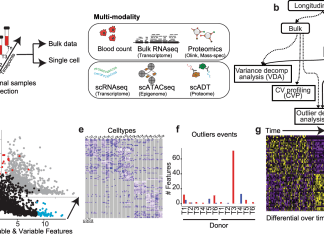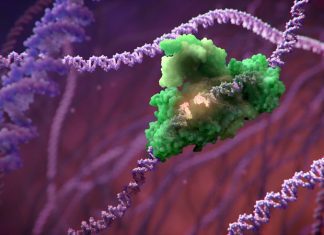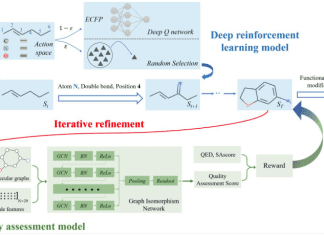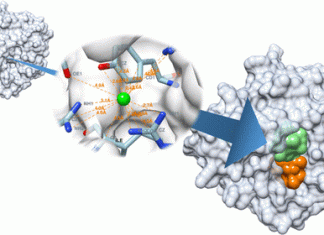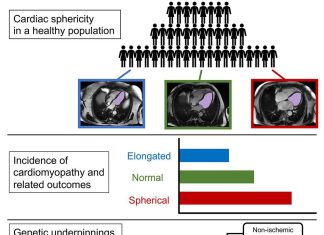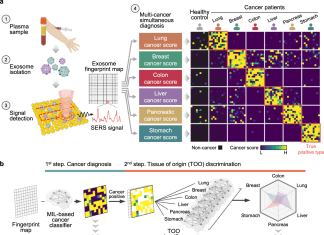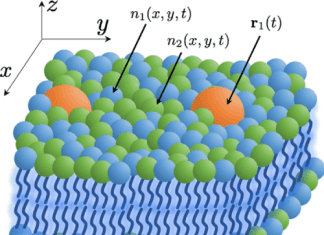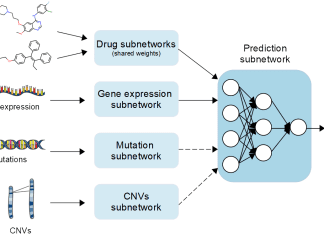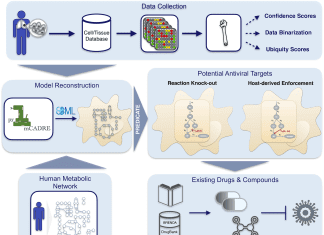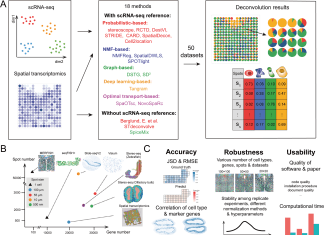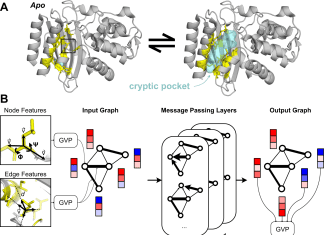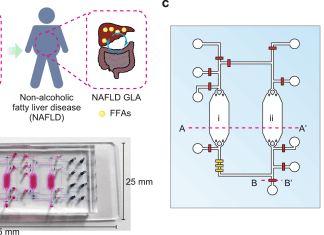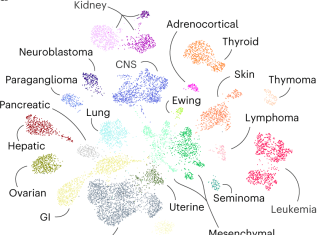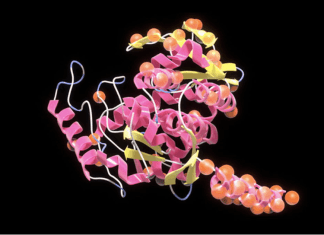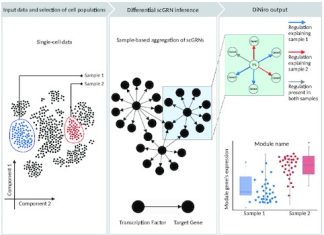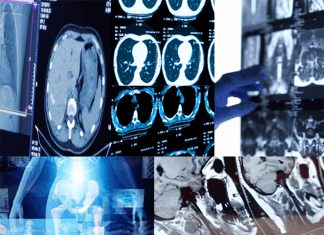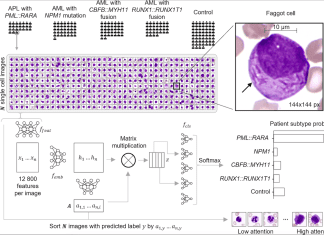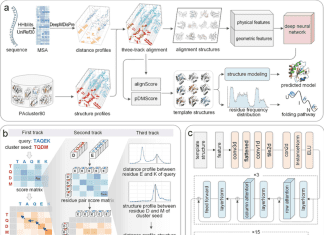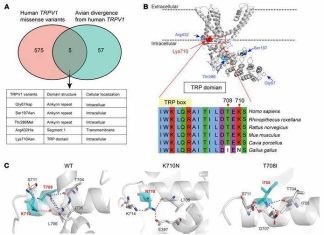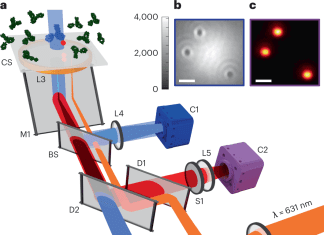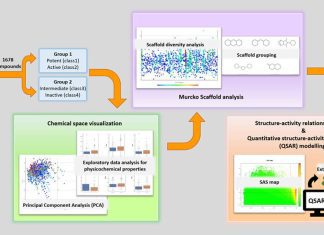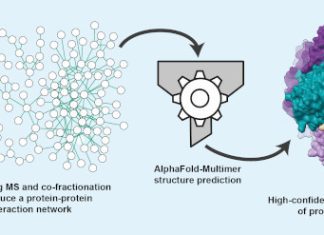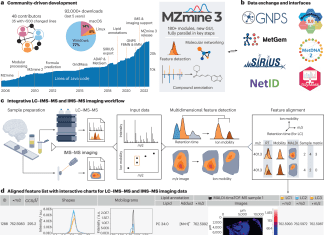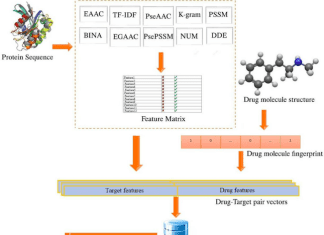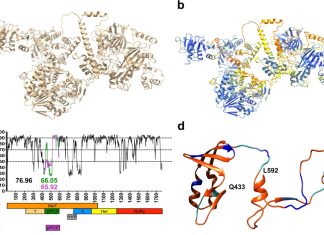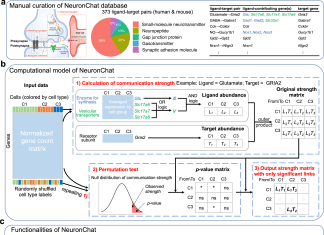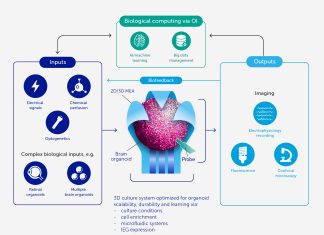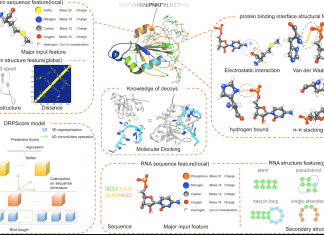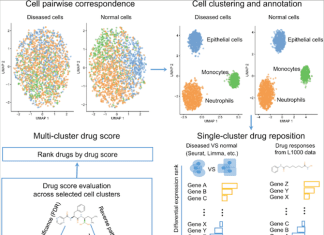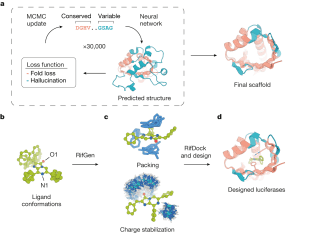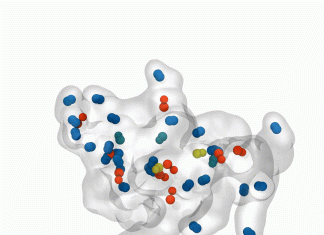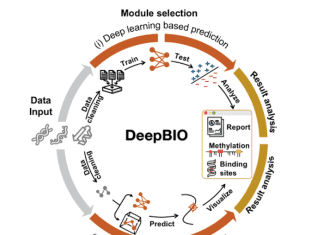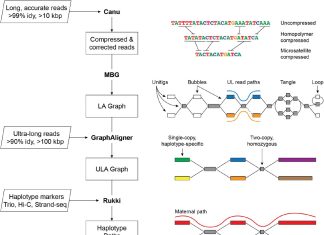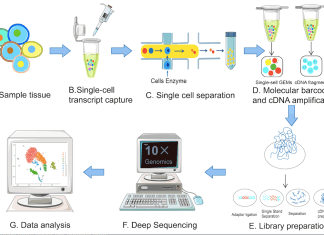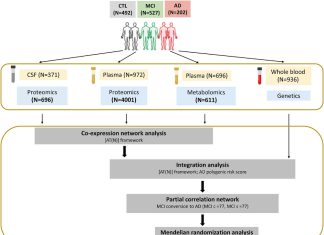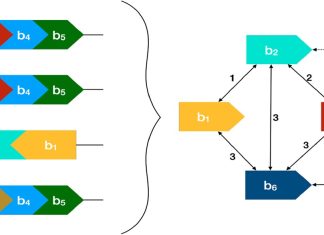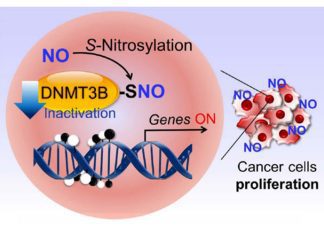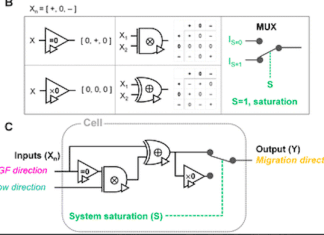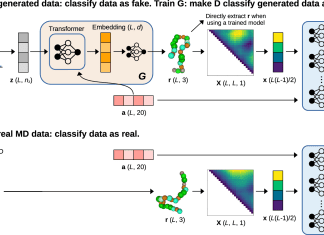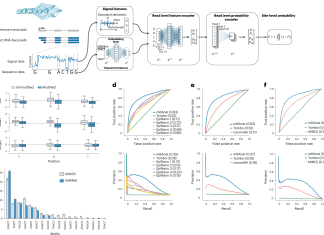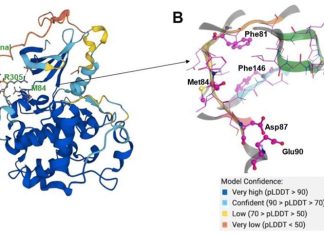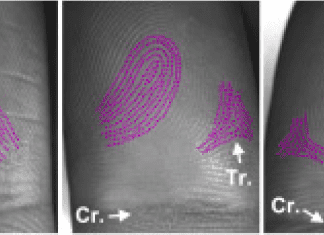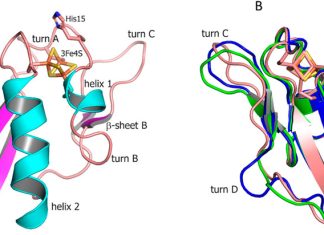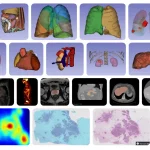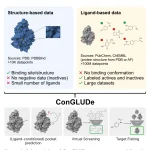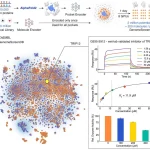Researchers Introduce PALMO: A Novel Software Platform for Longitudinal Multi-omics Data...
In the past few years, there has been a significant increase in multi-omics data generation for biomedical research. However, the analysis of these large-scale,...
Enzyme Function Prediction from Amino Acid Sequence: How AI is Leading...
An innovative artificial intelligence program called CLEAN (contrastive learning–enabled enzyme annotation) has the ability to predict enzyme activities based on their amino acid sequences,...
Enhancing De Novo Drug Design with QADD: A Powerful Combination of Reinforcement Learning...
Scientists from Shanghai have developed a de novo drug design method, QADD (quality assessment-based drug design approach). The multi-objective reinforcement learning-based method is capable of designing...
Precise Protein-Ligand-Binding Site Mapping with ‘SiteRadar’: A Graph Machine Learning Algorithm
The identification of ligand-binding sites on the surface of a protein is a vital aspect of structure-based drug design. SiteRadar is a new algorithm...
Why the Shape of Your Heart Could be the Key to...
Recent findings by the Smidt Heart Institute based on deep learning analysis of medical images suggest, that one's likelihood of developing atrial fibrillation and...
Researchers Offer an Innovative Single Test-Based Approach for Early Stage Cancer...
Conventionally, cancer diagnostic procedures have been known for their invasive nature and enormous cost. However, researchers from KAIST and Korea University have developed a...
LLNL Scientists Introduce Cutting-edge Theoretical Model for More Efficient Simulations of...
Lawrence Livermore National Laboratory, California's scientists have developed a theoretical model based on Dynamic Density Functional Theory (DDFT) for modeling multicomponent cellular membranes as...
Evaluating the Efficacy of Deep Learning Algorithms for Predicting Drug Synergy...
Cancer therapies often become ineffective due to the development of resistance in the tumor cells against the treatment. One potential strategy to overcome this...
Novel Workflow Uses Targeted Computer Modeling to Predict Druggable Targets Against...
Scientists from the University of Tübingen, Germany, have developed a novel workflow for predicting robust druggable targets against emerging viral infections such as the...
Unravelling Spatial Transcriptomics: A Benchmark Study of Cellular Deconvolution Methods
A recent study published in Nature Communications comprehensively evaluated computational methods used for spatial transcriptomics data analysis. The scientists investigated how well various advanced computer methods...
Penn Scientists Introduce ‘PocketMiner’ for Predicting Cryptic Pockets in Proteins and...
The discovery of cryptic pockets has widened the scope of drug development by permitting the targeting of proteins previously deemed undruggable due to the...
Scientists Introduce Integrated-gut-liver-on-a-chip ‘iGLC’ Platform: an Innovative Human Model for Non-Alcoholic...
Scientists from Kyoto University, Japan, have developed an integrated gut-liver-on-a-chip platform as an in-vitro human model for the study of non-alcoholic fatty liver disease...
Revolutionizing Healthcare: Machine Learning Programs Predict Risk of Death based on...
Healthcare providers have been using routine hospital tests to evaluate patients' health for decades. Electrocardiogram (ECG) tests are frequently a part of these tests....
Machine Learning-aided Multiscale Transcriptomics Results in Pediatric Cancer Atlas for Diagnostic...
Scientists from The Hospital for Sick Children, Toronto, have developed an atlas for childhood cancer diagnostic classification using machine learning approaches. Pediatric cancers are...
Transforming Protein Design with “ProT-VAE”: A Novel Approach Made Protein Engineering...
Due to the absence of adequate theoretical models and the enormous protein sequence space, the data-driven design of proteins with particular functions is difficult....
Meet DiNiro: An Interactive Platform for Single-cell RNAseq-based Gene Regulatory Network...
Scientists from the University of Hamburg, Germany, have developed a novel methodology, DiNiro, for unraveling differential regulatory disease mechanisms from single-cell RNA-seq data. Computational...
New Study Aims to use Machine Learning to Explore the Surprising...
According to a new study presented at the 52nd Annual Meeting & Exhibition of the AADOCR, held in conjunction with the 47th Annual Meeting...
Exploring the Potential of DALL-E 2 for AI-driven Image Generation in...
In the field of radiology, generative models, notably DALL-E 2, have tremendous promise for image production and modification. Scientists have shown that DALL-E 2...
The Future of Cancer Care: Explainable AI Detects Diagnostic Cells of...
Scientists from Germany have developed SCEMILA, an inherently explainable AI tool for identifying diagnostic cells of acute myeloid leukemia (AML) subtypes. The authors find...
Meet PAthreader: A Powerful Tool for Protein Structure and Folding Pathway...
Scientists from the Zhejiang University of Technology, China, have proposed a new method, PAthreader, to improve the recognition accuracy of remote homologous structures by...
New Study Reveals Gene Mutation that Controls Pain Sensitivity
The experience of pain is complicated, subjective, and unique to each person. While some people have a high pain tolerance, others may regard even...
Pushing the Limits of Protein Detection: The Role of Machine Learning
The detection of biomolecules at the nanoscale is of great significance in fundamental biology research, just as it is for biomedical investigations. The evolution...
New Study Shows Pan-variant mRNA-LNP T Cell Vaccine Proves Effective Against...
Current COVID-19 vaccines induce neutralizing antibodies that can inhibit viral entry, but their efficiency decreases when new variations arise. On the basis of short...
Bridging the Gap between Cheminformatics and Machine Learning to Investigate Androgen...
Researchers from Thailand perform a systematic cheminformatics analysis and machine learning modeling to study how human Androgen Receptors (AR) antagonists combat Prostate cancer, one...
AI-Powered Structural Proteomics Unveils New Insights into Protein Complexes in Cells
Molecular biology is being revolutionized by the application of artificial intelligence to simulate the structures of proteins and their complexes. Researchers utilized a combination...
Scientists Introduce “MZmine3” for Processing Big Data to Identify Hidden Chemicals...
Scientists from Prague have developed MZmine3, a scalable platform for the analysis of mass spectrometry (MS) data from different instrumental setups. The platform supports...
Predicting Drug-target Interactions using Protein Features and Wrapper Feature Selection
The prediction of drug-target interactions (DTI) plays a significant role in drug development by helping in the identification of new drug targets, the repurposing...
Transformers in Action: Deep Learning Aided Cardiac Patient Mortality Risk Prediction...
Scientists from Finland have studied and explored two transformers (deep learning models), BERT and XLNet, in the context of predicting 6-month mortality in cardiac...
Insight into Structural Features of Hepatitis E: Princeton Researchers Discover New...
Scientists from Princeton University have developed a comprehensive model of the structure and function of the open reading frame (ORF) 1 of Hepatitis E...
NeuronChat Sheds Light on Neuron-Neuron Communication in the Brain through Single-cell...
Scientists from the University of California, Irvine, have developed NeuronChat for inferring inter-neuronal communication using single-cell transcriptomics data. Previous cell-cell communication inference methods are...
From Cell Cultures to Intelligent Systems: “Organoid Intelligence” is the New...
Scientists from Johns Hopkins University lay out the possibility of energy-efficient biocomputing using brain organoids (3D brain cell cultures) that surpass in-silico computing capabilities. The recent...
Improving the Accuracy of RNA-protein Complex Structure Prediction with DRPScore: A...
Scientists have developed a new deep-learning-based approach called DRPScore for identifying native-like RNA-protein complexes essential for understanding cellular processes. DRPScore outperforms existing methods in...
Repurposing Drugs Simplified with ASGARD: A Single-cell Guided Pipeline
Scientists from the University of Michigan have developed a single-cell guided pipeline to aid the repurposing of drugs (ASGARD) by defining a drug score...
Designing High-Activity Luciferases with Deep Learning: A Promising Approach for Enzyme...
For many years, scientists have been baffled by the difficult task of designing enzymes, which is regarded as one of the most difficult challenges...
LongBondEliminator: A Novel Approach to Streamlining Molecular Dynamics Simulations
Scientists from Michigan State University have introduced the LongBondEliminator, a tool designed to detect and correct ring penetrations in molecular simulations. Ring penetrations is...
Meet DeepBIO: An Automated Deep Learning Platform for High-Throughput Functional Analysis...
Scientists from China have developed DeepBIO, an automated and interpretable deep learning platform for high-throughput biological sequence functional analysis. The first-of-its-kind platform enables researchers...
NHGRI’s Verkko Algorithm: An Advancement in Genome Assembly with Notable Limitations
Substantial progress has been made in assembling the first complete human genome sequence by the Telomere-to-Telomere consortium. However, complex repetitions in diploid genomes are...
Single-Cell RNA Sequencing: State-of-the-Art Technology and Future Prospects
Single-cell RNA sequencing (scRNA-seq) has proved to be a powerful tool for deciphering the entire repertoire of transcripts in a single cell. Traditional sequencing...
Big Data Analytics Reveals New Causal Pathways in Alzheimer’s Disease
King's College London scientists examined biological samples from hundreds of participants in a European study. The researchers studied the biological data at different stages,...
Whole-Genome Population Genomics Made Easy with “PRAWNS”: A Comprehensive Tool for...
Scientists from the University of Maryland have developed PRAWNS, a scalable and efficient tool for multi-genome analysis. With the unprecedented number of complete and...
From healthy cell to cancerous growth: the alarming role of “poisoned”...
Researchers from Scripps Research and Japan have discovered how a protein's "poisoned" form can set off a chain of events promoting specific cancers' growth....
Meet MinsePIE: A ML Tool to Predict Successful Insertion of Gene-edited...
Scientists from the Wellcome Sanger Institute, Hinxton, UK, and the University of Tartu, Estonia, have developed a machine learning-based algorithm, MinsePIE, to predict prime...
Local Creek Holds Secret to Fighting Deadly Infections: Newly Discovered Virus...
Scientists from the University of Southern Denmark have made an interesting discovery that may help in the fight against antibiotic-resistant bacteria. The research team...
Unlocking the Mystery of Cancer Cell Movement: Logic Gates Provide Answers
Scientists from Purdue University unravel cell migration direction under the influence of environmental cues using a ternary logic gate system. Cells detect several environmental...
A New Era in Protein Conformational Ensemble Generation: The Role of...
The biological activity of a protein is determined not only by its static, three-dimensional structure but also by its dynamic characteristics, which form a...
Meet m6Anet: A Multiple Instance Learning based Neural Network Model for...
Scientists from the Genome Institute of Singapore and A*STAR Singapore have developed a neural network-based method that implements a multi-instance learning framework, "m6Anet," to...
From Data to Diagnosis: Leveraging EHR Data to Identify Autism within...
Autism Spectrum Disorder (ASD), also known as autism, is a global health issue affecting millions of children worldwide. According to the World Health Organization...
AlphaFold Teams up with Other AI Tools to Accelerate the Drug...
Structure-based drug discovery (SBDD) is a standard method for identifying prospective medications for a target by leveraging its structural information. AlphaFold, a technique for...
Scientists Unlock the Mystery of Unique Fingerprint Pattern Formation
Scientists from Edinburgh have solved the mystery behind the formation and variation in fingerprint patterns. Fingerprints are complex patterns, unique to every individual, and...
The Fight Against Tuberculosis Takes a Major Step Forward: Scientists Find...
Researchers from Skoltech, MIPT, the National Academy of Sciences of Belarus' Institute of Bioorganic Chemistry (IBOCH NAS), and the Russian Academy of Sciences' Institute...

